Russia unrest: How Alexei Navalny rose to become Vladimir Putin’s worst nightmare
Russia’s opposition leader is driven by a deep loathing for the Kremlin authorities. And he’s angrier than ever.
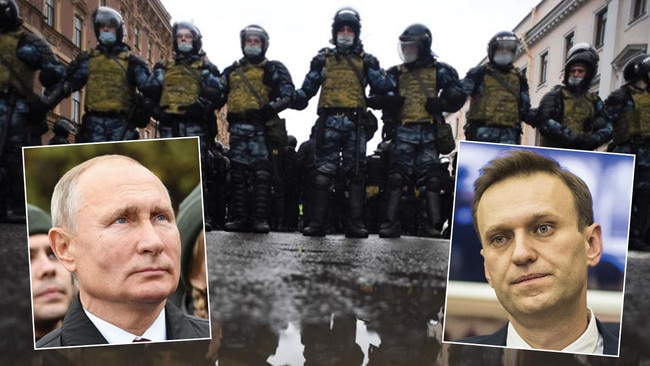
It was the evening after Russia’s disputed parliamentary elections in 2011 when Alexei Navalny clambered on to a stage at a noisy protest in Moscow and gripped the microphone stand with both hands, as if he were a rock star rather than an anti-corruption blogger.
Online videos of blatant vote-rigging in favour of Vladimir Putin’s ruling United Russia party had sparked a nationwide outcry. But it had been unclear whether that anger would spill out of internet chatrooms and forums and on to the streets. Putin’s supporters had mockingly referred to Russia’s social media dissidents as “internet hamsters”. They were about to bite back.
“I am an internet hamster and I will gnaw through the throats of those swine!” screamed Navalny, who had a still small but growing following. He was later arrested as he led demonstrators towards the Kremlin. It was the moment that protesting against Putin became fashionable in Russia and Navalny emerged as the opposition’s brightest star.
High price of dissent
The following weekend, up to 100,000 people marched through central Moscow in the country’s biggest protest since the collapse of the Soviet Union in 1991.
Navalny, 44, has paid a high price for his dissent over the ensuing decade. He has served multiple short jail sentences, as well as a year under house arrest.
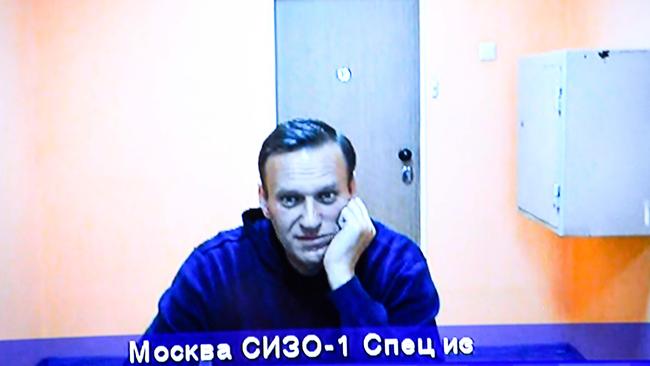
He has suffered an attack that almost blinded him in one eye, and a near deadly poisoning that he said was ordered by Putin. Friends and family members have also been targeted.
Today protesters and police will face off outside a district court in eastern Moscow as the Kremlin weighs up the risks of sending Navalny to a prison camp for more than three years for alleged parole violations.
Few good options for Putin
Investigators have also separately accused him of embezzling donations to his anti-corruption group, an allegation that he says is politically motivated.
Putin has few good options: a prison term is likely to spark new protests and fresh western sanctions. It would also transform Navalny into a martyr and a potent symbol of resistance. Yet releasing Navalny would give him the opportunity to mobilise the opposition in advance of parliamentary elections scheduled for September.
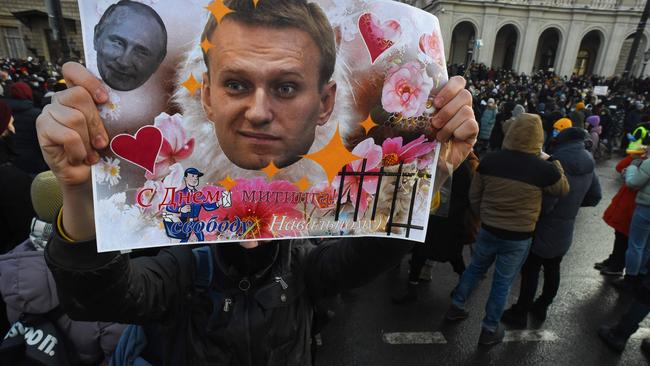
A failure to lock up his biggest domestic critic would also make Putin appear weak in the eyes of security service hardliners, something he can ill-afford amid falling living standards and rising discontent. Despite the pressure, Navalny has refused to buckle.
He is driven, he has admitted, by a deep loathing for Putin and his allies. “I understand that hatred as a motive doesn’t sound very good,” he once said. “But it’s 80 per cent of my motivation. I hate them with every fibre of my soul. I can’t eat calmly when I think about them.”
His hatred is reflected in his rhetoric. Navalny has dubbed Putin’s ruling party “the party of crooks and thieves” and Kremlin officials “tiny, cowardly jackals”. He has also called Putin “a toad sitting on an [oil] pipeline”.
Navalny’s journey
Although it sometimes seems as if Navalny emerged from nowhere to challenge Putin with his electrifying speeches and allegations of staggering Kremlin corruption, he has been involved in opposition politics for more than two decades.
It is a journey that has taken him from obscurity as a rank-and-file member of Russia’s oldest liberal party through a stint as a nationalist activist to become the leader of a diverse coalition of opposition forces that he once described, with his trademark wry humour, as “nationalists, liberals, leftists, greens, vegetarians, and Martians”.
Not everyone likes his politics but they all agree that he is the only opposition figure with a chance of taking on Putin.
Born into a military family near Moscow in 1976, Navalny spent his early childhood summers at his grandmother’s home in Ukraine, in a small village near Chernobyl. He avoided being caught up in the world’s worst nuclear disaster by only a few months. He appears to have inherited his rebelliousness from his grandmother, a virulent anti-communist: when a relative once told her that he had visited Lenin’s tomb on Red Square, she reportedly asked: “Did you spit on him?”
Navalny studied law in the mid-1990s at the prestigious Peoples’ Friendship University in Moscow. Other notable alumni include Mahmoud Abbas, the Palestinian Authority president, and Anna Chapman, the Russian intelligence agent who was deported from the United States in 2010 as part of a spy swap.
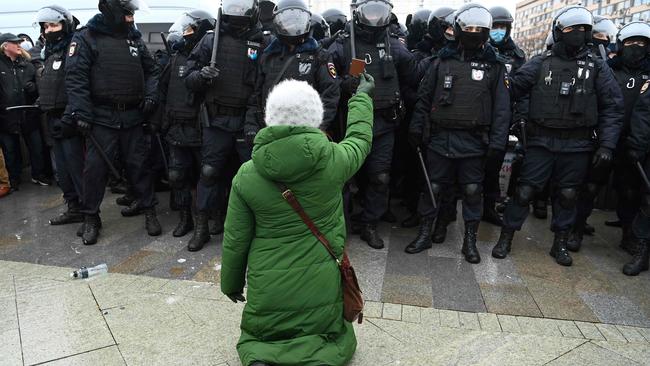
After graduating, he worked as a lawyer at a real estate firm while gaining a master’s degree in finance. He entered politics in 2000, the year that Putin came to power, when he joined Yabloko, a liberal party.
‘Putin’s Plan or Putin's Clan?’
During Putin’s second term, with national television firmly under the control of the Kremlin’s censors, Navalny organised a series of heated political debates at clubs in central Moscow.
The project was a runaway hit but came to a violent end after he confronted a group of intruders who were trying to disrupt a discussion entitled “Putin’s Plan or Putin’s Clan?”
As the dispute spilled on to the street, Navalny drew a traumatic pistol — a non-lethal weapon of compliance — and fired four shots at one of the thugs. Photos from the scene showed rubber bullet casings on a bloodstained pavement. The man Navalny had shot at was reported to have been the son of an official at the FSB spy agency. An investigation was opened but quickly closed under circumstances that remain unclear.
In 2006 Navalny stunned his liberal allies by launching Narod, a nationalist-democratic movement, and attending the Russian March, an annual rally in Moscow of nationalist and ultra-right groups. He defended his actions as an attempt to encourage a broader debate about mass immigration to Russia from mainly Muslim former Soviet states such as Uzbekistan and Tajikistan.
Although he condemned far-right violence, he sparked controversy by comparing dark-skinned criminals from the North Caucasus region to cockroaches. He also said that illegal migrants posed a threat to Russia’s future. “We have the right to be ethnic Russians in Russia,” he declared in an online video in 2007. “And we will defend that right.” He has largely dropped such rhetoric in recent years but has offered no apology. Many of his younger followers are only vaguely aware of his nationalist past.
Global fame
The following year Navalny began the anti-corruption investigations that would eventually propel him to global fame, detailing his findings on a blog called “The Final Battle between Good and Neutrality”.
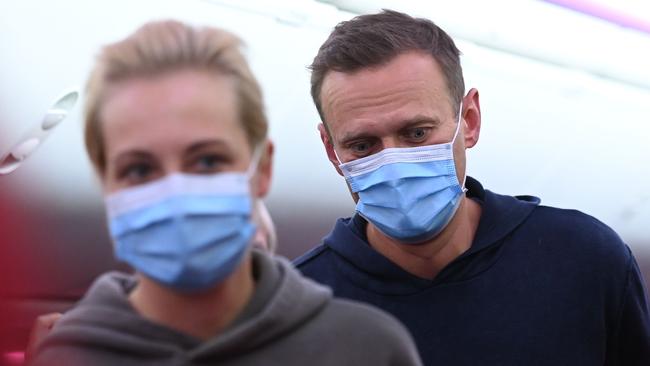
His tactics were simple: he would purchase a minuscule amount of stock in a state company (for example, 0.00000326 per cent in the state oil concern Rosneft) and then “poke” around to see what he could find. His first major investigation resulted in allegations that senior officials at Transneft, the state oil-transport monopoly, had siphoned off half a billion dollars in funds that had been earmarked for charity.
Buoyed by his success, Navalny launched Rospil, a website devoted to uncovering suspicious looking tenders for services requested by government agencies. Among Rospil’s exposes was an order for dollars 60,000 worth of mink coats that officials in St Petersburg insisted were intended for patients at a psychiatric institute. The order was annulled.
Despite the controversy over his nationalism, Navalny was accepted on to Yale University’s World Fellows program in 2010, a four-month course designed to “sharpen leadership skills”. His critics have pointed to his studies in the United States as evidence that he is a western agent set upon betraying Mother Russia. Yet Navalny was recommended to Yale by a number of influential Russians alarmed by entrenched corruption and a lawless business environment.
Among them was Sergei Guriev, a prominent economist who was at the time an adviser to the Russian government. “I wrote that: ‘This is a guy who does extremely important work for Russia, who goes after corruption in state companies. These people should be educated and supported and so on’,” he said. Guriev was later forced to flee Russia over his support for the anti-corruption crusader.
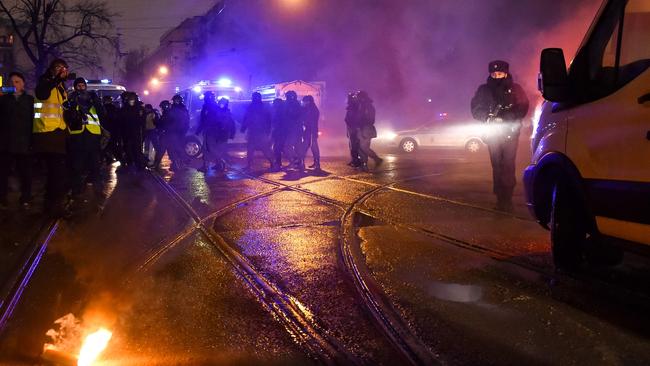
After the Kremlin crushed the 2011-12 election protests that Navalny had helped to inspire, the authorities targeted him with a swathe of criminal charges that, as one Russian journalist put it, “flew from the pens of investigators like woodchips from a sawmill”.
Saved by people power
Even Navalny would admit that he was having trouble keeping track. In 2013 he was imprisoned for five years on dubious embezzlement charges but was released unexpectedly on bail after furious protesters broke through police cordons to surround the State Duma, Russia’s parliament. His prison term was swiftly commuted to a suspended sentence.
Navalny had no doubt that he was saved by people power. “Those protesters were angry, they were mainly young men under the age of 35 and, yeah, they might have simply gone home later, but then again they might have burnt down the State Duma,” he said.
Later that summer, Navalny ran for public office for the first time, challenging Sergei Sobyanin, Moscow’s Kremlin-loyal mayor. Even though he had been banned from national television he came second with almost 30 per cent of the vote amid allegations of ballot stuffing to ensure victory for Sobyanin. He has not been allowed to take part in an election since.
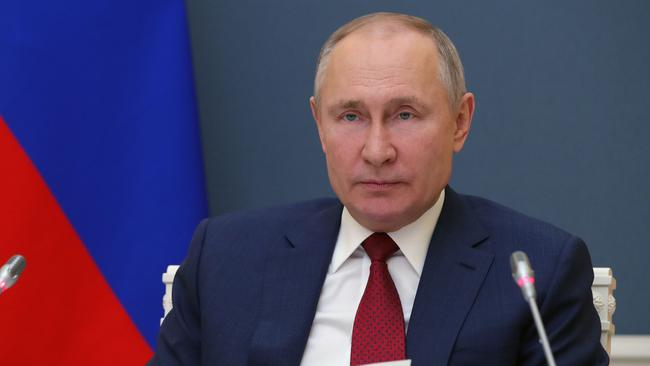
The following year Navalny was back in court again when he and his younger brother, Oleg, were convicted of stealing hundreds of thousands of pounds from two Russian companies, including the local branch of Yves Rocher, the French cosmetics company. The European Court of Human Rights said that the ruling was “arbitrary and manifestly unreasonable” and Yves Rocher employees testified that no crime had been committed.
As opposition activists made plans for a massive rally near Red Square, the judge handed Navalny another suspended sentence, while his brother was imprisoned for three and a half years. An enraged Navalny accused the Kremlin of taking his brother “hostage” and called for revolution from the steps of the courtroom.
Oleg would serve every day of his sentence, much of it in solitary confinement.
In the years since, Navalny has built up an impressive regional network and expanded his political reach by moving further to the left.
Before he was poisoned in August he had been working to create strong trade unions to stand up for the rights of Russia’s impoverished healthcare workers and teachers. He remains as angry as ever. “These thieving old men in their bunkers are afraid more than anything of people taking to the streets,” he said in a video message recorded at court last month. “Don’t stay silent. Resist.”
The Times
More Coverage
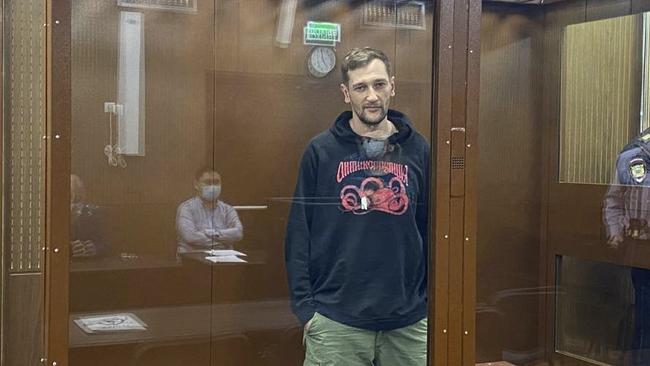

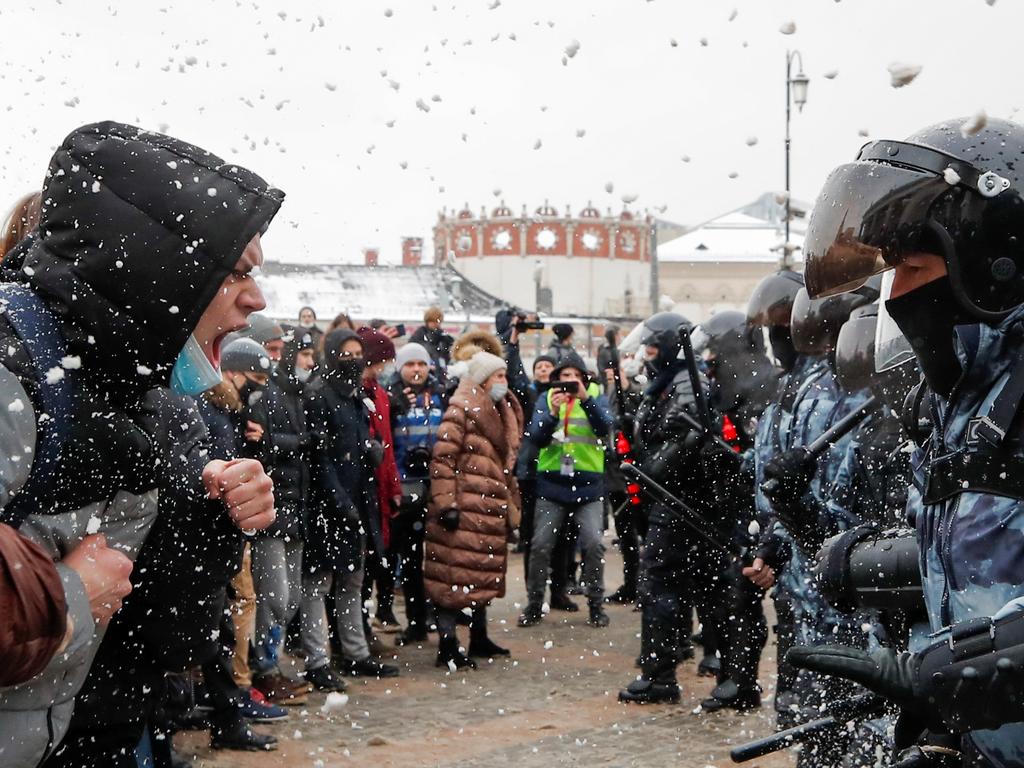

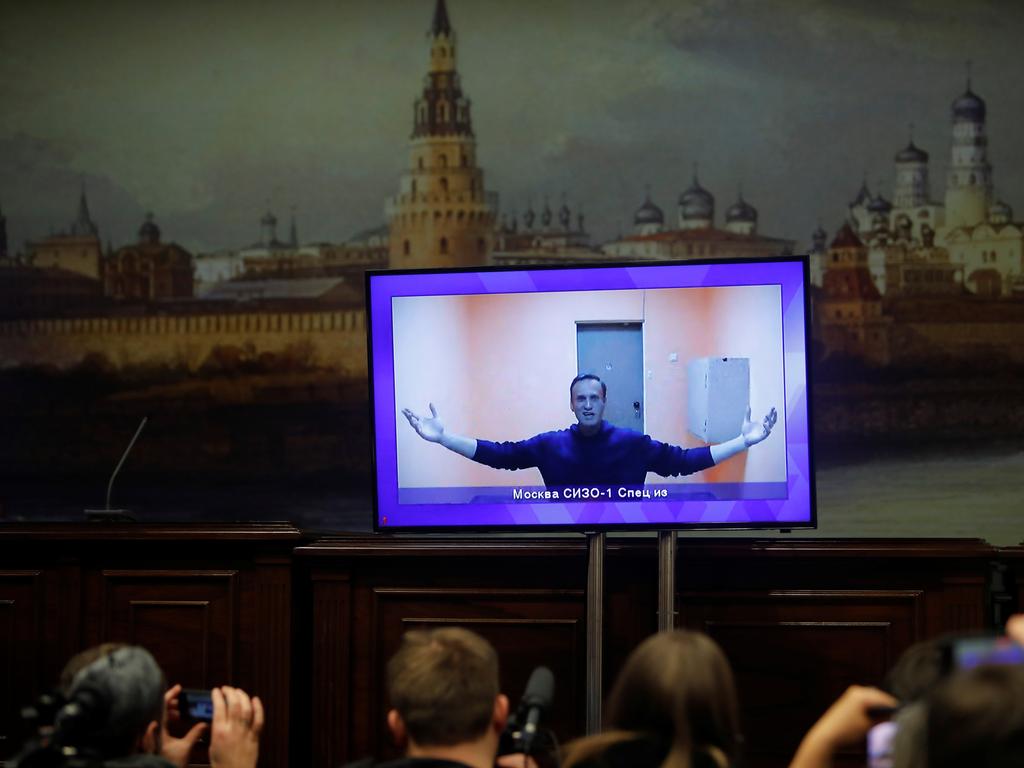
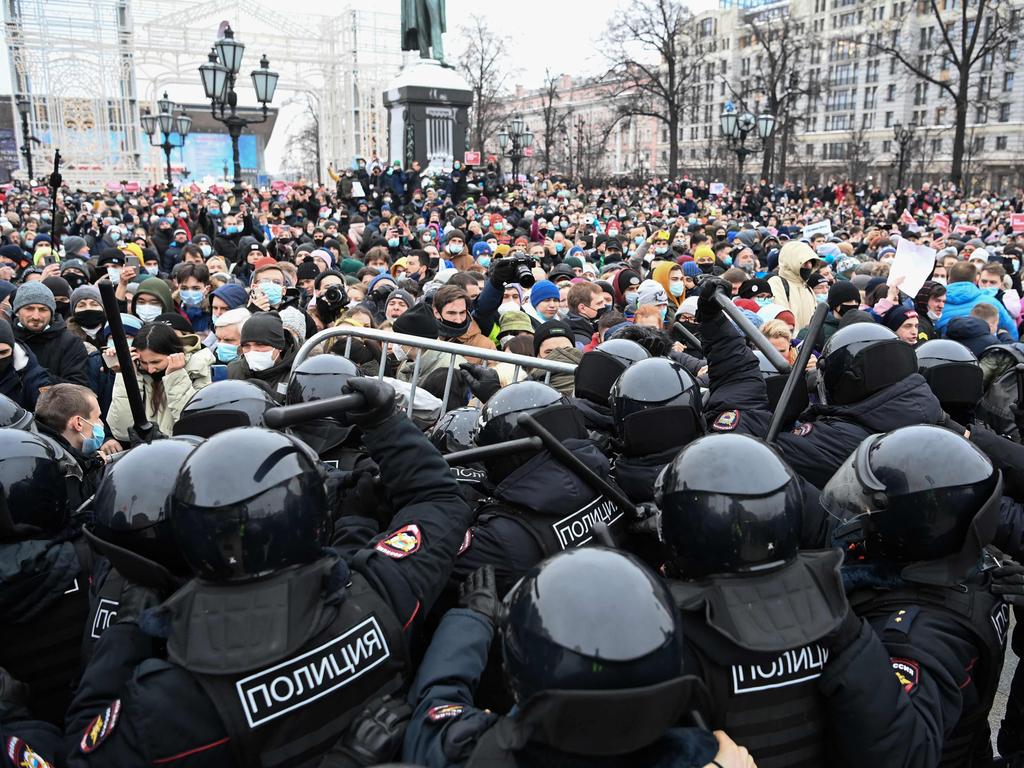
To join the conversation, please log in. Don't have an account? Register
Join the conversation, you are commenting as Logout